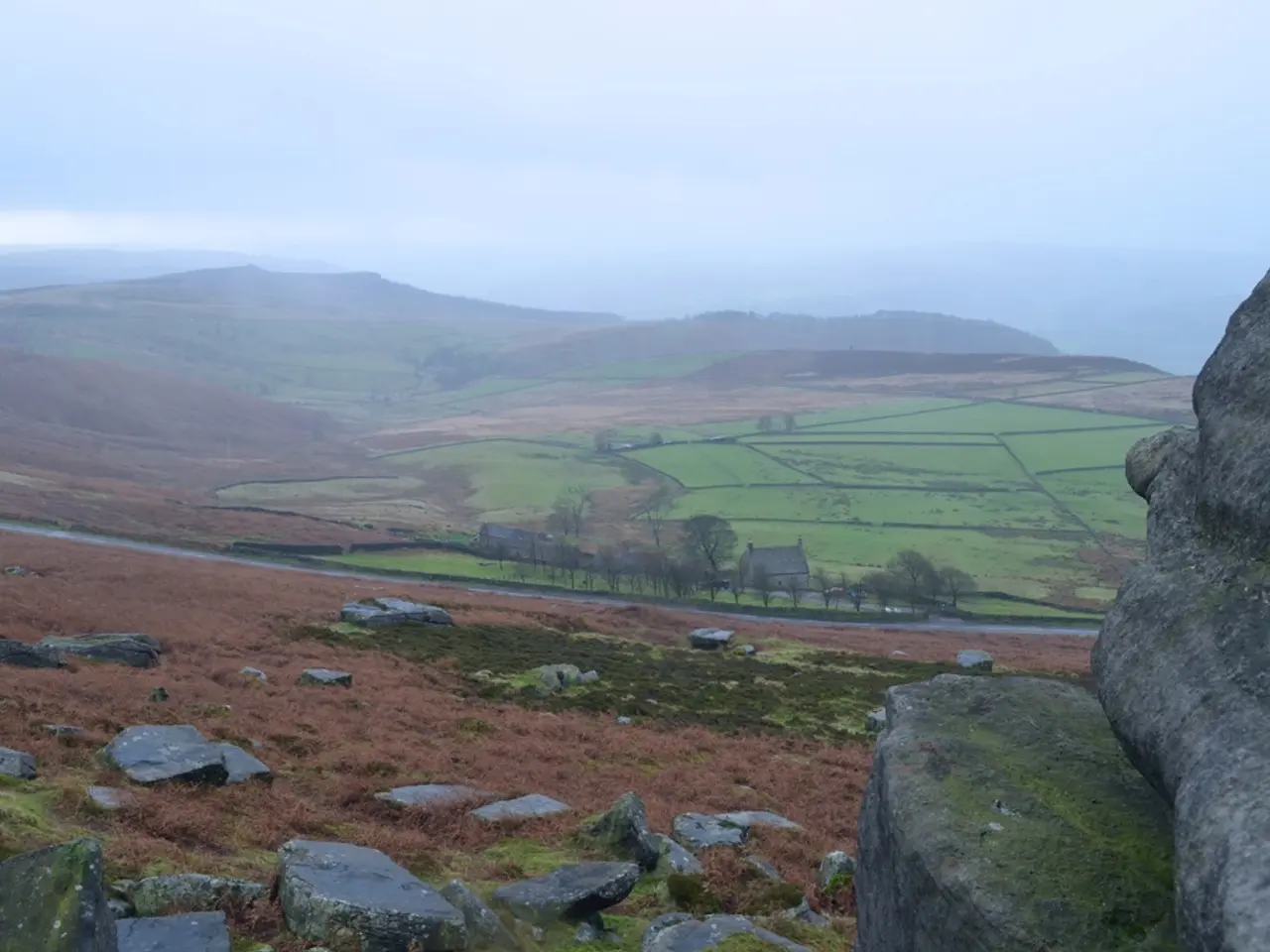Bloomsbury Hills Adorned with Terraced Gardens
In the stunning landscapes of Tajikistan's Zarafshan Valley, a remarkable transformation is underway, thanks to the efforts of Welthungerhilfe. The organisation is not only reforesting the land and stabilizing slopes, but also empowering local farmers with knowledge and resources to cultivate a bountiful and sustainable harvest.
For years, deforestation had led to soil erosion and increased avalanche risks. However, with Welthungerhilfe's support, approximately 35,000 people in the districts of Panjakent and Ayni are now reaping the benefits. The families enjoy a fresher, more balanced, and vitamin-rich diet due to the higher quality produce, as inefficient cultivation methods have become a thing of the past.
The valley's mountainside is now a verdant tapestry of apple, walnut, and apricot trees. Lush green vegetable gardens adorn the steep slopes, replacing the barren landscapes of yesteryear. This transformation is possible due to the seeds, trees, and plants that grow better in the region, leading to higher harvest yields.
The farmers of the Zarafshan Valley once lacked the resources and knowledge to fully utilise the agricultural potential of their land. But now, they have the opportunity to learn about innovative and environmentally-friendly agricultural methods. Training sessions are provided on topics such as crop rotation, fruit tree cultivation, composting, organic fertilization, and integrated pest control.
Moreover, farmers are taught methods to prevent landslides that can destroy their gardens. Techniques like installing lynchets and contoured gardens are shared, helping to secure the soil and prevent erosion.
In addition to agricultural support, Welthungerhilfe is also rehabilitating and constructing 16 small and mini power plants and establishing 12 photovoltaic facilities to power water pumps. This infrastructure development ensures a reliable water supply for irrigation, further enhancing the agricultural productivity of the region.
Romy Lehns, Welthungerhilfe Country Director in Tajikistan, stated, "The agricultural sector in the Zarafshan Valley has great potential." The organisation's efforts are indeed making a significant difference, not just in the lives of the farmers, but also in the health of the environment.
In your own mountain garden, you can adopt similar erosion control methods. Focus on multi-layered vegetation planting (trees, shrubs, ground cover), mulching, and structural measures like terracing, tailored to your local climate and soil. By implementing vegetation-based slope stabilization combined with soil management techniques, you can secure your slopes and prevent landslides, just as Welthungerhilfe did in the Zarafshan Valley.
References:
- Soil and Water Conservation Practices
- Vegetation-Based Erosion Control
- Terracing
- Mulching and Adding Organic Matter
- Stone Bunds
- In their own homes, people can apply the knowledge of environmental-science, learning to implement science-backed gardening techniques such as multi-layered vegetation planting, mulching, and terracing to prevent soil erosion, similar to the methods used in the Zarafshan Valley.
- By adopting sustainable gardening practices, such as planting home-and-garden crops in lush, contoured vegetable gardens, individuals can contribute to a healthier lifestyle and help preserve the environment, much like the farmers in the Zarafshan Valley who are now growing a bountiful and sustainable harvest.




